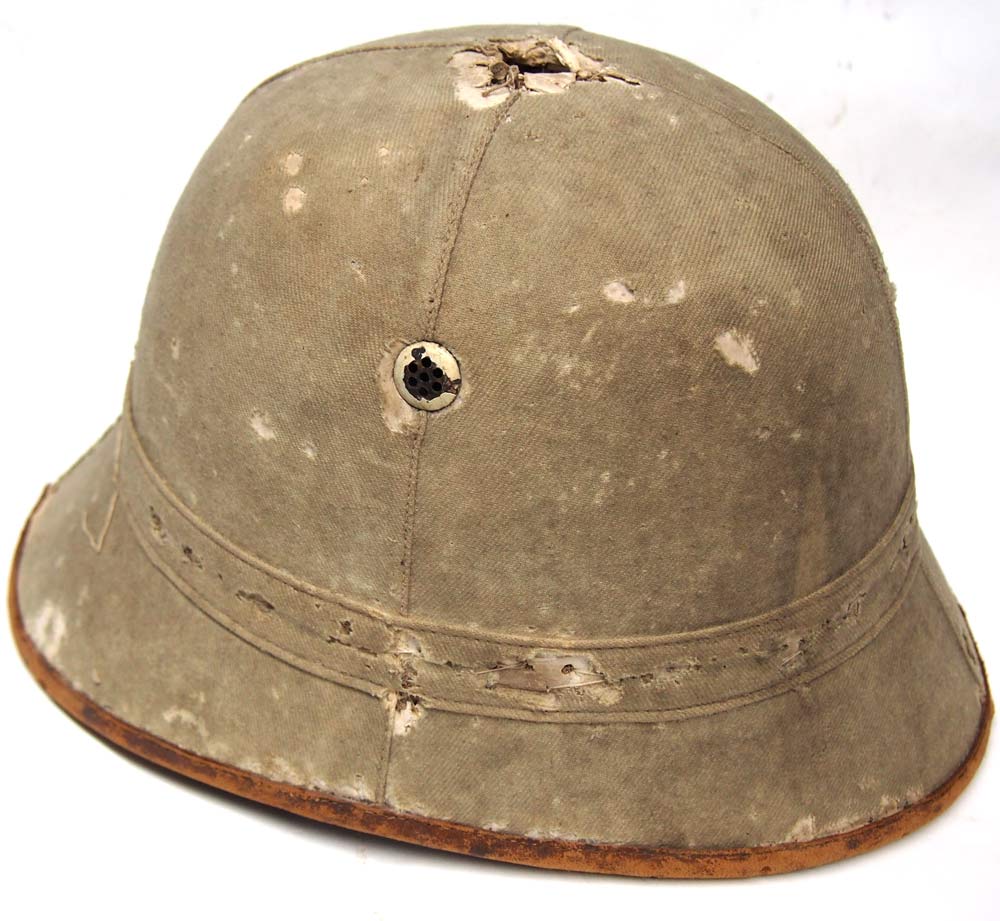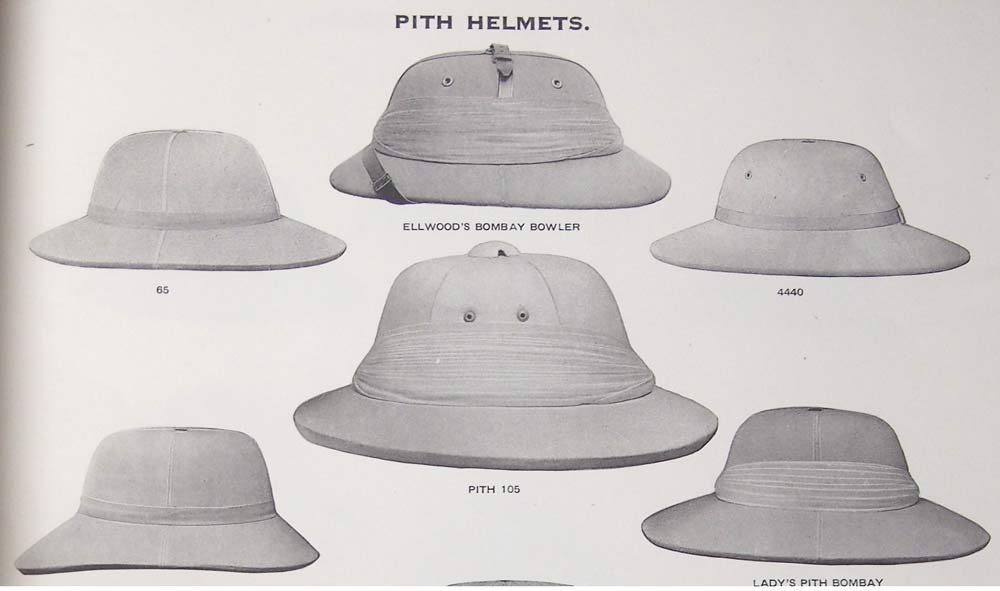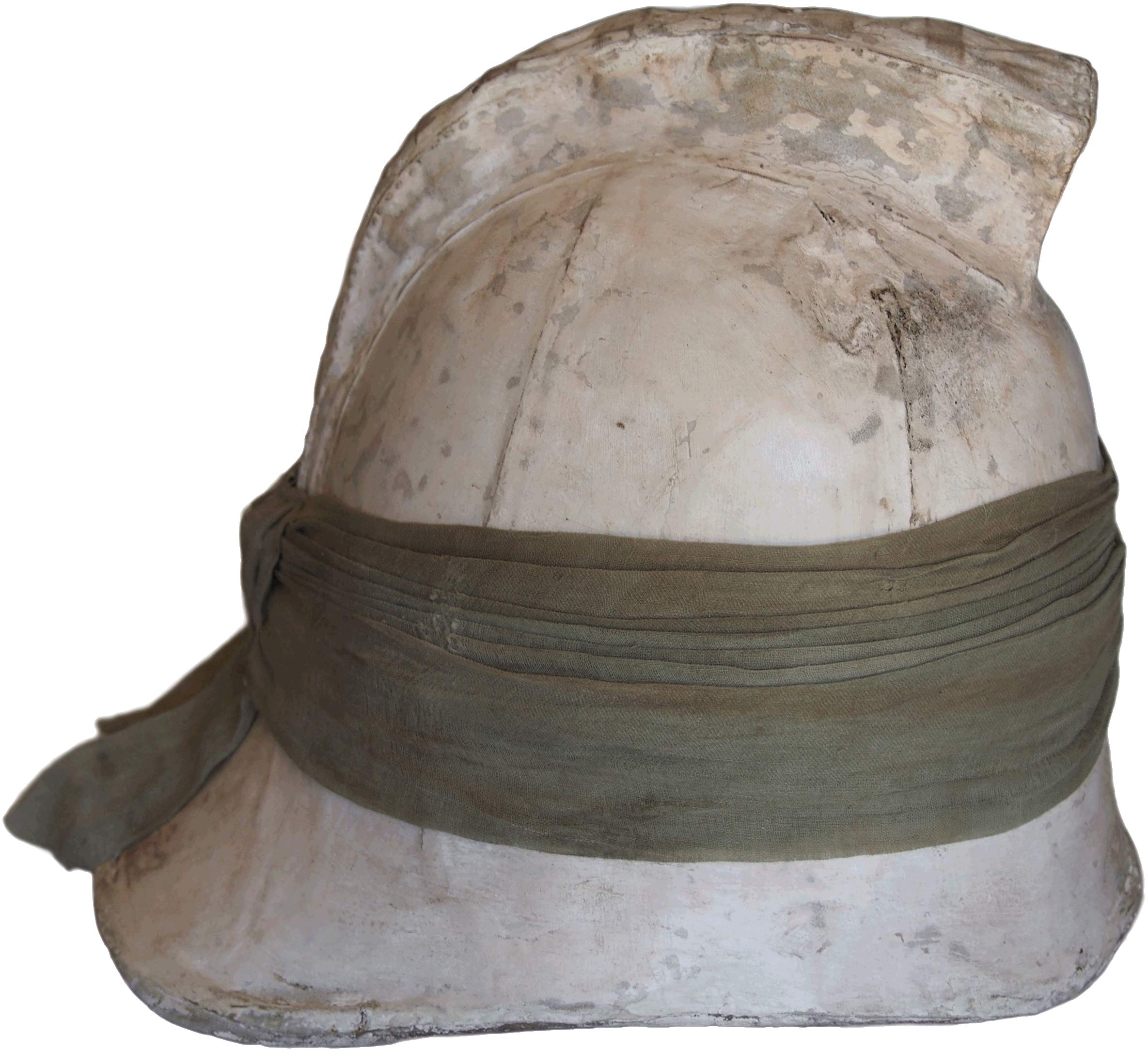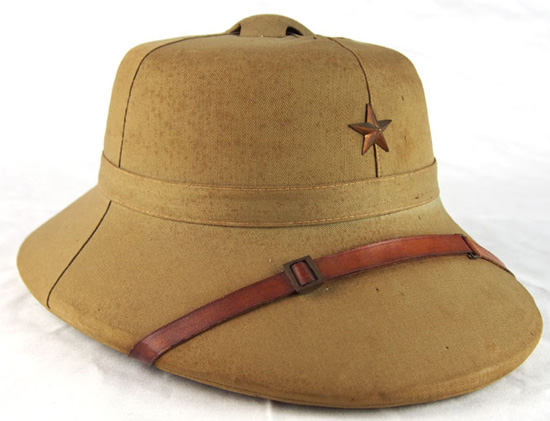 While the sun/pith helmet originated in India, as we have noted the British were not alone in considering the importance of such headgear in tropical climates. By the end of the 1870s France had adopted its own version and it does seem that these were influenced, and perhaps even copied, from the British pattern. However, as with the helmets made in London, the French Model 1878 pattern was made of cork, likely supplied by Portugal, and produced in Metropolitan France. Throughout its Africa and Southeast Asia colonies the French military used helmets made of cork, and this remained the case until after the Second World War.
While the sun/pith helmet originated in India, as we have noted the British were not alone in considering the importance of such headgear in tropical climates. By the end of the 1870s France had adopted its own version and it does seem that these were influenced, and perhaps even copied, from the British pattern. However, as with the helmets made in London, the French Model 1878 pattern was made of cork, likely supplied by Portugal, and produced in Metropolitan France. Throughout its Africa and Southeast Asia colonies the French military used helmets made of cork, and this remained the case until after the Second World War.
Category Archives: Pith
Marketing of Sun/Pith Helmets

While today everyone pretty much buys everything on Amazon.com or some other online retailer back not all that long ago catalogs provided a way for people to browse products from the comfort of their homes. This interwar catalog from Ellwood Hats Ltd. successors to J. Ellwood & Sons of London shows how sun/pith helmets were marketed.
Is the “Pith Helmet” a Sign of Colonialism as the Media Believes it to be?

While we typically write about the history, use and even the evolution of military sun helmets and other tropical headdress, I felt it necessary to address another aspect of sun/pith helmets. Recently, First Lady of the United States Melania Trump was called out for simply choosing to wear a pith helmet as a part of a “safari” inspired outfit.
The Roman Air Tube Helmet: The Origins of the British Sun Helmet

The Ellwood and Sons’ “Roman” Air Tube design was among the first British-made sun helmets. Its design came about largely as a result of Great Britain’s expanding empire in India and parts of Africa. It was in many ways an answer to locally made helmets, which were increasingly necessary due to the tropical heat of the subcontinent.
By the time of the Indian Mutiny, which began in 1857, the British had already had a presence in India for well more than 200 years yet it wasn’t until the 1840s – coinciding with the effects of the end of the Little Ice Age in Europe – that serious consideration was given to making uniforms and headdress more comfortable for wear in hot weather.
The Tale of a Surplus US M1887 Summer Helmet.
A Private Purchase Pith Helmet: A Christys’ & Co Ltd, Colonial Pattern Sun Helmet

Figure 1. The crest of Christys’ of London; they have been producing hats for almost two and a half centuries. Underneath the Christys crest on this silk label is the name of the Canadian shop where this helmet was sold, Thorne Brothers occupied that address between 1880 and 1909 3. Behind the sticker can be seen the sheets of pith used to construct this helmet.
Christys’ & Co Ltd, established in 1773, are well known hatters who are still producing quality hats to this day. At the end of the 19th century they were the world’s largest headwear manufacturer. They have always been famous for producing best quality products, supplying Royalty since King George III’s reign, entitling them to use the royal crest on their logo. They are perhaps most famous for designing the Custodian helmet for the British police in 1863.
A Japanese War Trophy

With the fall of Hong Kong on December 25, 1941 and Singapore on February 15, 1942 the British suffered two of its greatest setbacks in the Far East during World War II, with the latter being described by Prime Minister Winston Churchill as the “worst disaster” in British history.
Some 80,000 men were captured at Singapore and untold equipment with it. Today it is possible to encounter British sun helmets (and even steel helmets) that were possibly captured by the Japanese in either Hong Kong, Singapore or in the later invasion of India. However, as it is all too easy to add a Japanese cap star to a helmet these should be viewed with suspicion at the very least. One has turned up that does have all the right signs that indicate that it is likely the “real deal.” Continue reading

